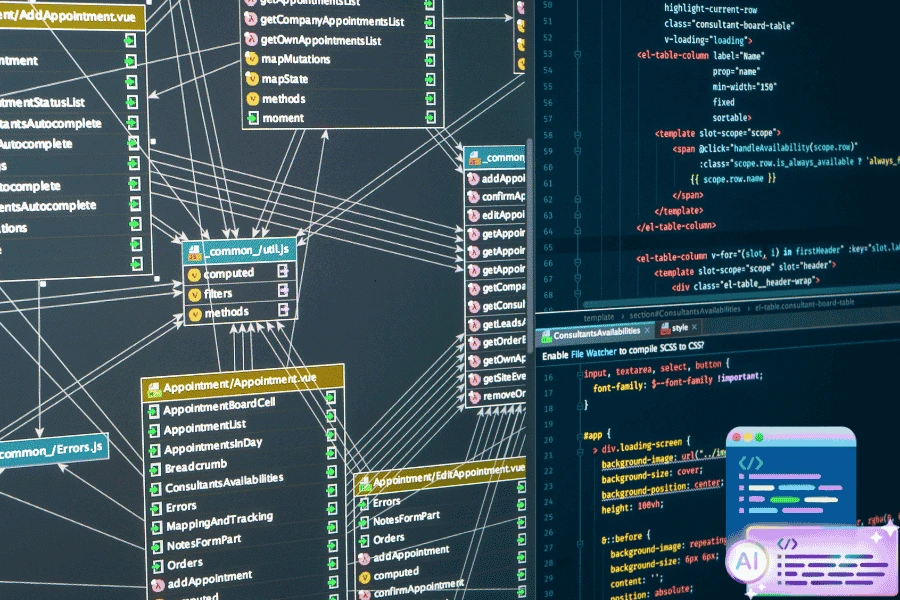Developing Decentralized AI Marketplaces with Python
The convergence of Artificial Intelligence (AI) and blockchain technology is creating new opportunities across industries, particularly in the development of decentralized AI marketplaces. These platforms enable users to exchange AI models, data, and services in a transparent, secure, and decentralized manner. With blockchain providing trust and security, and AI offering advanced computational capabilities, decentralized AI marketplaces are poised to redefine the landscape of machine learning and AI services.

What Is a Decentralized AI Marketplace?
A decentralized AI marketplace allows participants to exchange AI models, datasets, and services in a distributed network, often leveraging blockchain technology to facilitate transactions without a central authority. The main benefits of a decentralized AI marketplace include:
Transparency: All transactions (e.g., model purchases, data exchanges) are recorded on the blockchain, providing transparency.
Security: Blockchain's cryptographic security ensures that AI models and data are tamper-proof and that sensitive data is protected.
Ownership: AI developers can maintain ownership of their models and datasets, enabling direct access to buyers without intermediaries.
Trust and Accountability: Smart contracts on the blockchain can enforce agreements automatically, ensuring that participants adhere to predefined terms and conditions.
Incentives and Tokenization: Blockchain can facilitate the use of tokens to incentivize data sharing, model training, or algorithm development.
Use Case: Decentralized AI Marketplace for Model Trading
Let’s look at an example use case where a decentralized AI marketplace is built for trading machine learning models. AI developers can list their models on the marketplace, buyers can browse available models, and when a transaction is completed, the model is transferred to the buyer, and the developer is compensated.
Organizations use Blockchain technology to create secure and tamper-proof Decentralized Ledger datasets. Once the ledger is created, there cannot be any back-dated entries. Access is available only to authorized people with minimum exposure to the data, ensuring data security. AI tools that analyze the datasets are assured of data integrity, which enhances the accuracy of predictive models.
Key Features:
Model Listings: Developers can list their models with metadata (e.g., description, price).
Payments: Payments can be made in tokens or cryptocurrency, facilitated through smart contracts.
Ownership Transfer: Once the transaction is complete, the model ownership is transferred to the buyer, and the payment is automatically sent to the seller.
Incentives: Token rewards for data contributors and validators.
Challenges in Developing Decentralized AI Marketplaces
Developing decentralized AI marketplaces presents several complex challenges, despite the potential for creating more transparent, equitable, and accessible platforms for AI models and data. One of the major obstacles is data privacy and security. AI models, particularly in sectors like healthcare or finance, often rely on sensitive and private data. Storing and sharing this data on a decentralized blockchain network can compromise privacy, especially if the blockchain is public. Privacy-preserving techniques, such as zero-knowledge proofs or encrypted data storage, must be integrated to ensure compliance with regulations like GDPR while still maintaining transparency. Another challenge is ensuring fair compensation for AI model developers and data providers. Without a central authority, establishing a transparent and secure mechanism for pricing and rewarding participants becomes difficult. Smart contracts could help automate this process, but determining fair value in a decentralized, open market can be complex.
Conclusion
In conclusion, while decentralized AI marketplaces have the potential to revolutionize the way AI models and data are shared, traded, and monetized, they face a number of significant challenges. Issues such as data privacy, security, fair compensation, interoperability, and maintaining quality control are key hurdles that need to be addressed for these platforms to thrive. Blockchain’s promise of transparency and decentralization can offer solutions, but it requires the careful integration of advanced cryptographic techniques, smart contracts, and scalable infrastructure to meet the demands of both AI developers and users. Overcoming these challenges will require continuous innovation and collaboration between technologists, policymakers, and stakeholders.
- Lejhro bootcamp https://www.bootcamp.lejhro.com/data-science-course-training And
- https://www.bootcamp.lejhro.com/full-stack-development-course-training in just eight weeks.
Active Events
Data Scientist Challenges One Should Avoid
Date: August 14, 2024 | 7:00 PM (IST)
7:00 PM (IST) - 8:10 PM (IST)
2753 people have registered
Your Data Science Career Game-Changing in 2024: Explore Trends and Opportunities
Date: Aug 08, 2025 | 7:00 PM (IST)
7:00 PM (IST) - 8:10 PM (IST)
2811 people have registered
Bootcamps
Data Analytics Bootcamp
- Duration:8 weeks
- Start Date:October 5, 2024
Data Science Bootcamp
- Duration:8 weeks
- Start Date:October 5, 2024
